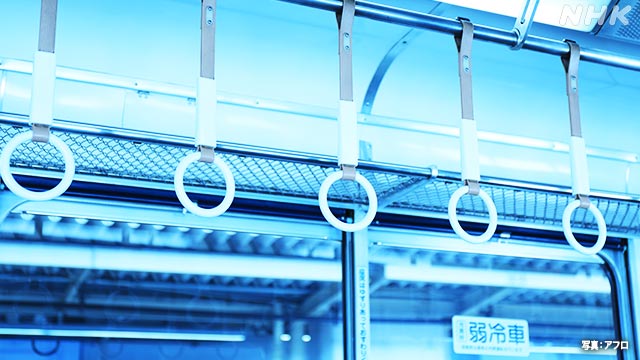JR West Reduces 48 late-night trains in Kansai from next spring. Last train 30 minutes earlier September 17, 17:08
JR West announced that it will reduce the number of trains departing around midnight on major routes in the Kansai area from next spring, and accelerate the last train by up to 30 minutes.
The purpose is to reduce the number of users in the middle of the night and to reform the working style of workers who perform maintenance after the last train.
According to JR West, the number
of trains to be
reduced will be
12 lines in the Kansai area such as the
▽ Osaka Loop Line,
▽ JR Kobe Line, and
▽ JR Kyoto Line, and 48 trains departing from major stations around midnight.
It will be implemented in line with the timetable revision in March next year, which will accelerate the last train by up to 30 minutes.
However, it means to secure as much connection as possible with the final Shinkansen departing from Tokyo arriving at Shin-Osaka Station and private railway companies.
Reasons for accelerating the last train In JR West, work style reforms have progressed and the time to return home has been shortened. It is said that this is to promote work style reform.
JR West's Secretary of Transportation Sannohe said, "The number of train users in the middle of the night is decreasing year by year, and it is progressing due to the influence of Corona. I would like to proceed with understanding."
Regarding the last train, JR East also says that it will be about 30 minutes earlier on the main lines in the metropolitan area.
On the other hand, in Kansai, Osaka Metro wants to consider it in the future while looking at the demand in the middle of the night, but the main private railways have not considered it so far.
The background to accelerating the last train time
JR West says that the number of people who work overtime until late is decreasing due to work style reforms in the background of the earlier last train.
Up until two years ago, about 400 employees of Fenrir, an IT company that develops apps in Kita-ku, Osaka, came to work, and during the busy season, some worked in the office until just before the last train.
However, two years ago, in the wake of natural disasters such as earthquakes and typhoons, we introduced a telework system to create an environment where people can take it home to work or work at home without going to work in the first place.
With the spread of the new coronavirus infection, about 90% of employees now work at home several days a week, and no one works overtime in the office until midnight. ..
On the 16th, employees at this company finished their work after 6 pm and were on their way home quickly.
In addition, the in-house drinking party is basically a "remote drinking party" using the Internet, and it is no longer necessary to drink outside until the last train.
A male employee living in Izumi City, Osaka, used to go to work five days a week, working overtime until late and returning home by train near the last train, but work style reforms have progressed and he no longer works overtime at the company. , I work from home two days a week and don't even get on the commuter train.
A male employee said, "In the past, during the busy season, I sometimes worked overtime until just before the last train, but with the introduction of remote work, there are days when I don't go to work in the first place, so I don't care about the last train."
In addition, Mr. Wataru Iwamoto, chief of the general affairs department of "Fenrir", said, "I used to work overtime while worrying about the time of the last train, but now I feel that even if the last train is early, there will be no impact in the future. I would like to proceed with my work in the current way of working while observing trends in the world. "

